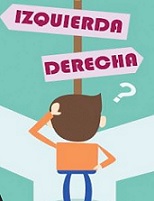 As a classical liberal, or libertarian in the American political lexicon, I am often frustrated with political labels that do not capture my belief in the supremacy of our natural rights or my understanding of liberty mostly as freedom from government. I find the American usage of political labels such as Left-Right and liberal-conservative, confusing and inconsistent.
As a classical liberal, or libertarian in the American political lexicon, I am often frustrated with political labels that do not capture my belief in the supremacy of our natural rights or my understanding of liberty mostly as freedom from government. I find the American usage of political labels such as Left-Right and liberal-conservative, confusing and inconsistent.
In the current American usage, Left, or liberal, is used to define those who believe government should play an extensive role, and who advocate for the use of government’s coercive powers to bring about a more egalitarian society. We label as Right, or conservative, those that argue that the role of government should be anchored on the Founding Fathers’ conceptualization of a limited government concerned primarily with protecting our lives, liberty, and property.
I emphasize “current American usage” because historically and geographically these labels have had different meanings. Yet, it is a fundamental philosophical incongruity to support a larger government role in our lives, while desiring increased personal freedoms. By definition, an expanded government diminishes liberty.
The terms Left and Right originated with the French Revolution (1789) when members of the National Assembly divided into supporters of the King (and religion) who sat to the President’s right, and supporters of the Revolution who sat to the President’s left. Then, Left and Right were not indicative of political ideology, but only of the seating arrangement in the legislature. Those on the left called themselves “Republicans” and those on the right referred to themselves as “conservatives.” It was not until early in the 20th Century that Left and Right came to be associated with political ideologies.
Similarly, the term “liberalism” originated in the early 1800s in the Cadiz Cortes in Spain where Liberales introduced reforms replacing feudal privileges with freedom of contract. The Liberales recognized the rights of property owners and favored the commercial middle class by eliminating special provisions for the Church and the nobility. In contrast with our current American usage, Spanish liberalism expressed the political theory of limited government, and the philosophy of John Locke, Adam Smith, and Thomas Jefferson.
On the other hand, historical conservatism holds that society comes first, and is superior to the individual. The historical conservative view is that power should be vested, not in individuals, but in institutions such as the State or the Church. In historical usage, conservatism stands for more government because the government is needed to complete the flawed individual. In the Spanish Cortes, the advocates of state power were called Serviles (the servile ones) who represented the privileges of the regalists and King Ferdinand VII.
In most of the world today, liberalism still stands for the supremacy of the individual, and conservatism for the supremacy of the State. Unfortunately, in the American usage, the term liberalism has come to mean something almost in direct contradiction to its historical roots. In our usage, liberalism and Left stand for a larger government role, and conservatism and Right stand for limited government.
In our current American usage, how do we label Republicans who want less government involvement in economic matters, but argue for more government controls on social topics? Are they liberal or conservative? Or, in what political cubbyhole do we put Democrats who want the government out of our private lives (as it should be) but want extensive government regulations of commercial activities? What is our party affiliation if we are fiscally conservative and socially liberal? How can we favor more personal freedoms and less personal freedoms simultaneously?
As a consistent supporter of individual freedoms, free markets, and limited government, I would prefer to reclaim our historical right to the term liberal. Unfortunately, it may be too late for that, and we are left with monikers such as classical liberal, market liberal, or libertarian.
However, the point of political labels should be to identify us according to our preferences for less or more government. Political labels ought to be an accurate shorthand expression of our political philosophy. So, how about libertarian for freedom lovers, and servile for government lovers?
Comments powered by CComment